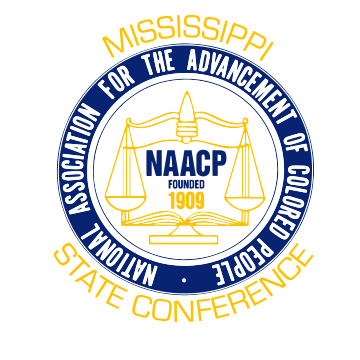F.C.C. Chief Seeks Broadband Plan to Aid the Poor
2005/28/5-For 30 years, the federal government has helped millions of low-income Americans pay their phone bills, saying that telephone service is critical to summoning medical help, seeking work and, ultimately, climbing out of poverty. Now, the nation’s top communications regulator will propose offering those same people subsidized access to broadband Internet.
On Thursday, that regulator, Tom Wheeler, chairman of the Federal Communications Commission, will circulate a plan to his fellow commissioners suggesting sweeping changes to a $1.7 billion subsidy program charged with ensuring that all Americans have affordable access to advanced telecommunications services, according to senior agency officials.
The effort is the F.C.C.’s strongest recognition yet that high-speed Internet access is as essential to economic well-being as good transportation and telephone service. Mr. Wheeler will propose potentially giving recipients a choice of phone service, Internet service or a mix of both, the officials said. He will also suggest new measures to curb fraud, a source of criticism in recent years.

While the plan is likely to secure the support of the F.C.C.’s Democratic majority in a vote next month, it is almost certain to also set off fierce debate in Washington. The subsidy program, Lifeline, has faced extensive scrutiny. And many of Mr. Wheeler’s previous actions, including his successful push to regulate broadband Internet as a public utility, have drawn indignation from opponents.
More than 12 million households now participate in Lifeline, which was created in 1985 by the Reagan administration to subsidize landline telephone service. In 2008, the program was extended to cover the cost of mobile phones. Enrollment rose sharply — as did abuse, with some households receiving more than their single allowed subsidy. To qualify, a household must have an income at or below 135 percent of the federal poverty line, or must participate in a program like Medicaid or food stamps.
Gene Kimmelman, who lobbied as a consumer advocate to create Lifeline, said the program was meant to keep people from having to choose between essentials like food, electricity and phone service. Now, he said, Internet access needed to be added to the list.
“Broadband is every bit as important today as plain old phone service was 30 years ago,” said Mr. Kimmelman, a former Justice Department official who is now chief executive of Public Knowledge, a consumer advocacy group.
Mr. Wheeler’s proposal is an effort to bridge the so-called digital divide, the ever-widening economic and social inequalities of those with access to technology and those without it. In 2000, 3 percent of Americans had broadband at home, according to Pew Research. In 2013, 70 percent did. But the adoption of broadband in low-income and minority households has not kept pace.
According to Pew data from 2013, the most recent year for which numbers are available, 54 percent of those making less than $30,000 a year have broadband, compared with 88 percent of those making more than $75,000. The same survey found that 53 percent of Hispanics and 64 percent of blacks in the United States have high-speed Internet at home, compared with 74 percent of whites.
For recipients like Sharell Harmon, a 23-year-old single mother from Elkins, W.Va., the Lifeline program has made a big difference.
“Without a phone, I couldn’t connect with my job, my kids’ doctors or their schools,” said Ms. Harmon, who works full time in construction while pursuing a college degree. “You don’t realize how many people you have to talk to until you can’t.”
Under her plan, she is entitled to 250 minutes of talk time and 1,000 text messages a month, limits she says she never comes close to crossing. But, Ms. Harmon said, she also needs high-speed Internet to feel fully connected and has struggled to pay her broadband bill.
“Everything is online these days,” said Ms. Harmon, who said she supported any effort to allow the subsidy to be applied to broadband. “I take classes online, do my schoolwork. My kids play math and phonics games.”
A vote on Mr. Wheeler’s proposal is expected on June 18, according to the senior agency officials, who spoke on the condition of anonymity because they were discussing a plan that had not yet been circulated among all five commissioners. If the plan wins majority approval, as expected, the antifraud measures would take effect soon after. The commission would then discuss the specifics of incorporating broadband into the program, and write rules to govern it. A final vote on the plan could come before the end of the year.
The Lifeline program offers each household a $9.25 monthly subsidy toward the cost of service; it was not until 2008, when the benefit was extended to prepaid mobile phones, which cost less than landlines, that some phone connections became fully free for Lifeline recipients. Mr. Wheeler is proposing setting service standards, which could include a specified number of mobile minutes and minimum broadband speed. Debate over just how far a $9.25 credit can go in covering the cost of broadband is sure to arise.
The plan will almost certainly face strong criticism. Some Republicans recently expressed skepticism that the F.C.C. has fully rooted out abuse from the program. In April 2014, the Justice Department indicted three people on charges that they defrauded the agency of $32 million in false Lifeline claims from September 2009 to March 2011.
In 2012, the F.C.C. instituted stricter safeguards, including the establishment of a database that crosschecked that no household received more than one subsidy. In March, the Government Accountability Office issued a report evaluating the effect of those changes. It said that the number of participating households had fallen to about 12 million in 2014 from about 18 million in 2012, suggesting more households were being held to one subsidy.
“The reforms had some impact, but whether they’ve reduced all of the fraud, we can’t tell,” said Michael E. Clements, an acting director at the G.A.O. who helped write the report. Mr. Clements said that of the 11 primary reforms the F.C.C. had said it would make in 2012, four had yet to be completed, according to his office’s recent review.
In response to the report, Michael O’Rielly, a Republican commissioner on the F.C.C., called the Lifeline program “inefficient, costly and in serious need of review.”
Mr. Wheeler’s push for new safeguards may be partly an effort to pre-emptively answer the program’s critics. Service providers currently must verify participants’ eligibility for Lifeline, and under the new plan, they would be required to keep proof of that eligibility and make it available if audited, senior F.C.C. officials said.
There has been speculation in Washington for months about changes to the program. A Senate subcommittee hearing is already scheduled for June 2 to examine its effectiveness and ways to prevent further abuse. The office of the senator who called the hearing, Roger Wicker, Republican of Mississippi, did not respond to repeated requests for comment.
“The program has been under attack, and the F.C.C. is currently facing incredible political pressure,” said Michael Scurato, policy director of theNational Hispanic Media Coalition. “It wasn’t always this contentious to make sure our neighbors in this country are connected to communications of the day.”
Source: The New York Times



